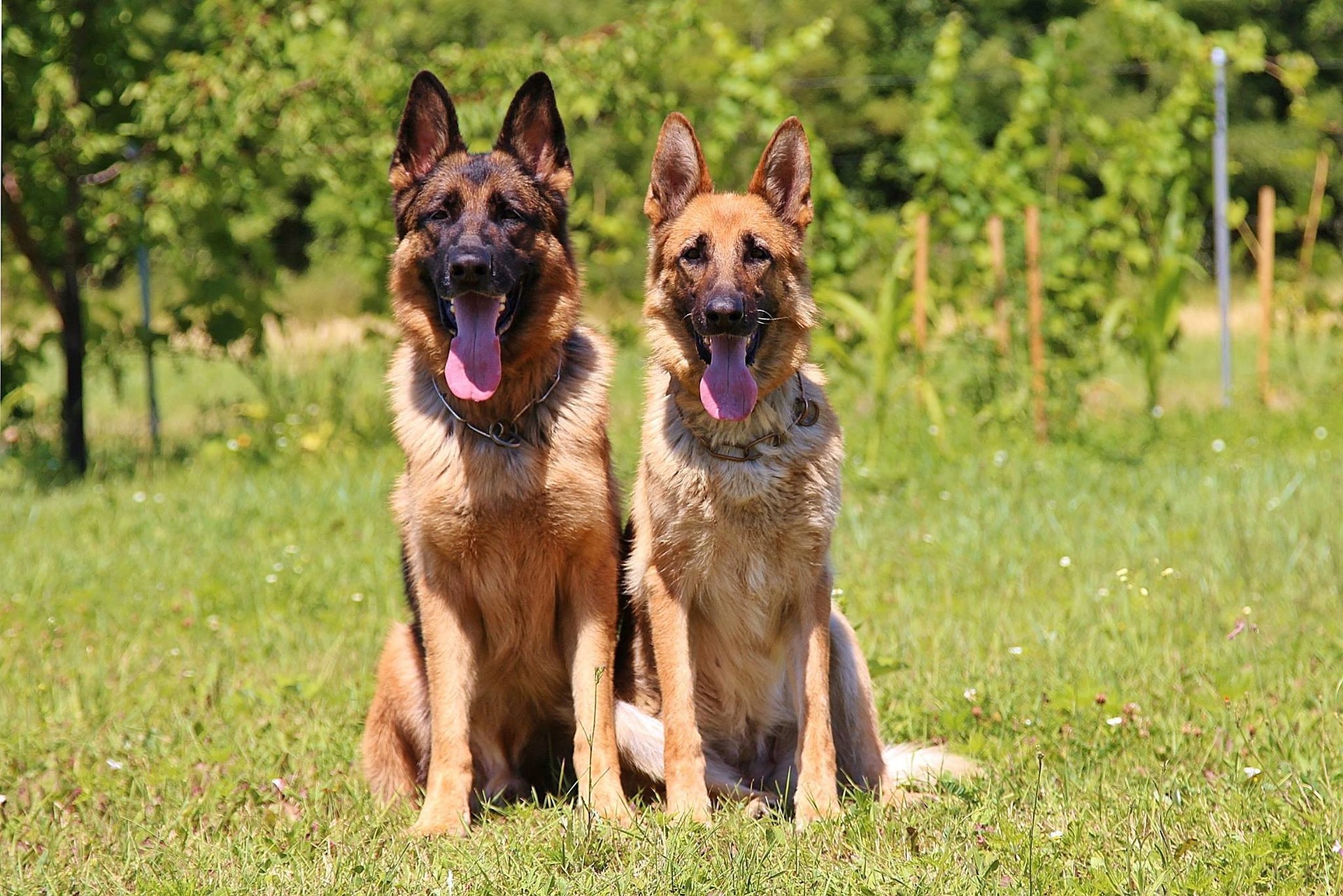New research reveals secrets of the demographics and disorders in German Shepherd Dogs
A new study conducted by the VetCompass™ Programme at the Royal Veterinary College (RVC) has revealed novel insights into the demographics and disorders of German Shepherd Dogs. This information will raise awareness of the susceptibility of German Shepherd Dogs to a variety of health conditions, inform diagnosis and treatment, and will help potential owners to decide between a male or female puppy.
German Shepherd Dogs are one of the UK’s most popular dog breeds, and have been widely used for herding, guarding, police, military and guide-dog roles. However, over recent decades, the physical shape of the German Shepherd Dog has become more extreme and there is now much debate about consequential impact on the health of the breed. This VetCompass™ study adds to current knowledge by providing key data from hundreds of UK vet practices about the health and demographics of this breed.

This new research revealed:
- German Shepherd Dogs are falling out of favour in the UK, dropping from 3.5% of all dogs born in 2005 to 2.2% in 2013.
- 63.43% of German Shepherds had at least one disorder recorded during 2013, which is similar to other breeds previously explored, including Cavalier King Charles Spaniels and Pugs.
- The average lifespan of German Shepherds overall was 10.3 years which is similar to other breeds of this bodysize.
- The most common disorders recorded in German Shepherds were ear infection (7.89%), osteoarthritis (5.54%), diarrhoea (5.24%), overweight/obesity (5.18%) and aggression (4.76%).
This information assists owners to be alert for these conditions; for example, to regularly check the ears for redness and pain, which will indicate an ear infection. It also suggests that preventive strategies for these conditions may be worthwhile in this breed, for example careful dietary control to reduce diarrhoea and obesity.
Three major differences were identified between male and female German Shepherd Dogs that may assist owners and vets to optimise decision-making during selection of a new German Shepherd Dog Puppy:
- Adult male German Shepherd Dogs (average 40.1 kg) were substantially heavier than adult females (average 34.8 kg). This has implications for feeding costs, space requirements and issues around lifting the dogs if required.
- Male German Shepherd Dogs were significantly more likely to show aggression than females (6.75% versus 2.78%). One implication may be that families with children may opt for a female German Shepherd Dog whereas male dogs may be more appropriate for guarding roles.
- Female German Shepherd Dogs lived on average 1.4 years longer than male German Shepherd Dogs (11.1 years versus 9.7 years). While there is no guarantee on the lifespan of any individual dog, this does suggest that a female German Shepherd Dog may be a better option for owners for whom a longer-lived pet is a priority.
Dr Dan O’Neill, an RVC epidemiologist and lead author of the study, said: “One of the most common questions from prospective dog owners that I used hear when I was in practice was whether to choose a boy or a girl puppy. With the power of VetCompass™, vets are now finally able to answer this question with some solid evidence for the first time.”
Caroline Kisko, Kennel Club Secretary said: “The Kennel Club welcomes research which provides valuable information about the health of dogs of any breed. The German Shepherd Dog is one of the seventeen breeds in the first round of the Kennel Club’s Breed Health and Conservation Plan project and therefore this new piece of research will form a valuable part of the evidence-base for this breed.
“Research projects such as these will allow evidence-based recommendations to be made as to how to advance the health and welfare of the breed.”
VetCompassTM collects anonymised clinical records on over 7 million companion animals across the UK. This latest paper is the 27th peer reviewed VetCompassTM publication. The RVC VetCompassTM Programme is revolutionising how we understand the health of companion animals and is making the UK a world leader in research methods applied to veterinary clinical records.
Press Office Contact
Uche Graves / Zoe Chadwick
T: 0800 368 9520
E: uche.graves@plmr.co.uk / zoe.chadwick@plmr.co.uk
Notes to Editors
The Royal Veterinary College (RVC) is the UK's largest and longest established independent veterinary school and is a constituent College of the University of London. The RVC offers undergraduate, postgraduate and CPD programmes in veterinary medicine, veterinary nursing and biological sciences, being ranked in the top 10 universities nationally for biosciences degrees. It is currently the only veterinary school in the world to hold full accreditation from AVMA, EAEVE, RCVS and AVBC.
A research-led institution, in the most recent Research Excellence Framework (REF2014) the RVC maintained its position as the top HEFCE funded veterinary focused research institution.
The RVC also provides animal owners and the veterinary profession with access to expert veterinary care and advice through its teaching hospitals; the Beaumont Sainsbury Animal Hospital in central London, the Queen Mother Hospital for Animals (Europe's largest small animal referral centre), the Equine Referral Hospital, and the Farm Animal Clinical Centre located at the Hertfordshire campus.
RVC Press Release 28 July 2017
See other Press Releases.
You may also be interested in:
-
The RVC maintains top performance in Knowledge Exchange Framework for fifth year
The Royal Veterinary College (RVC) has once again secured strong results in the fifth Knowledge …

